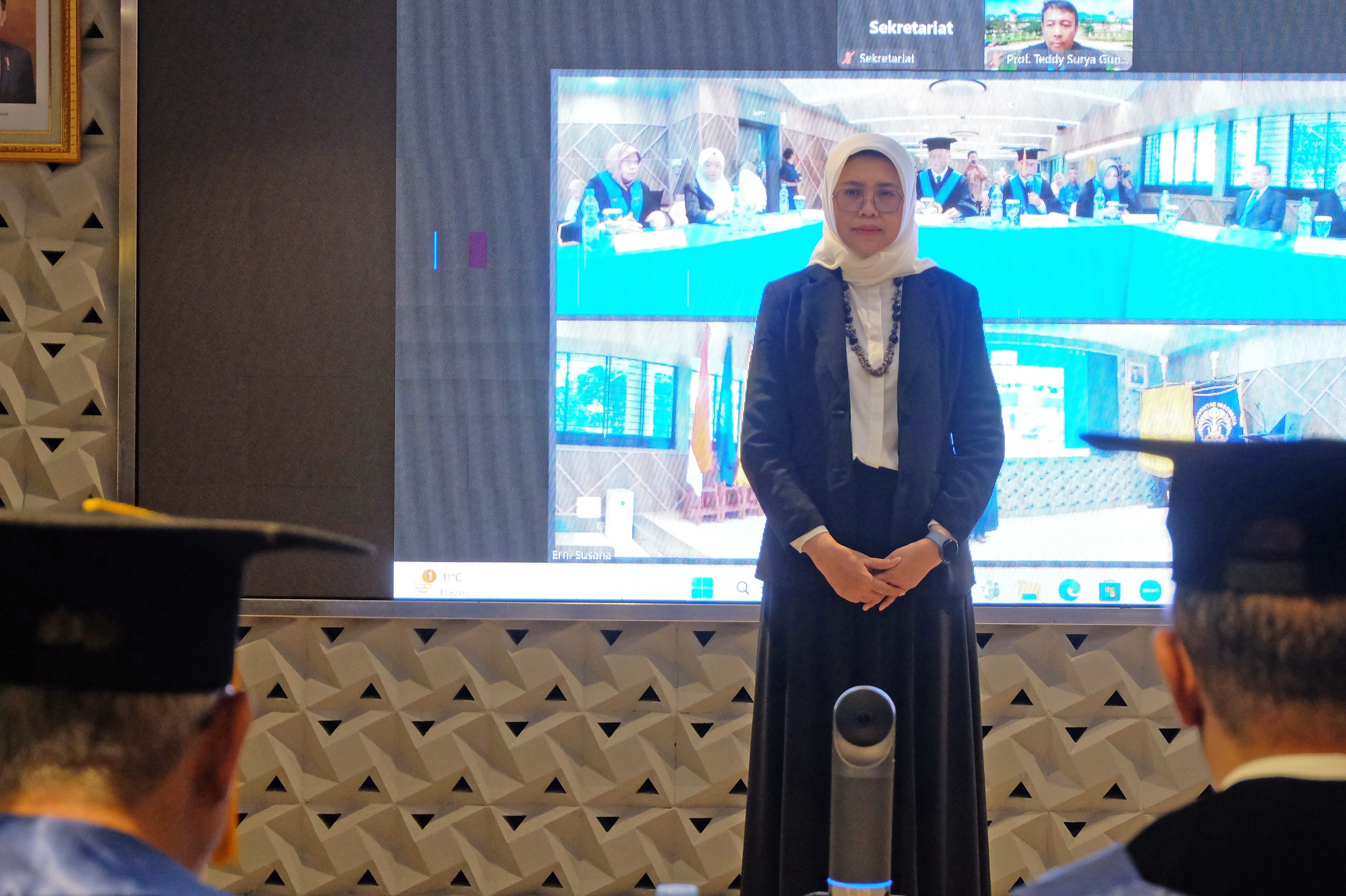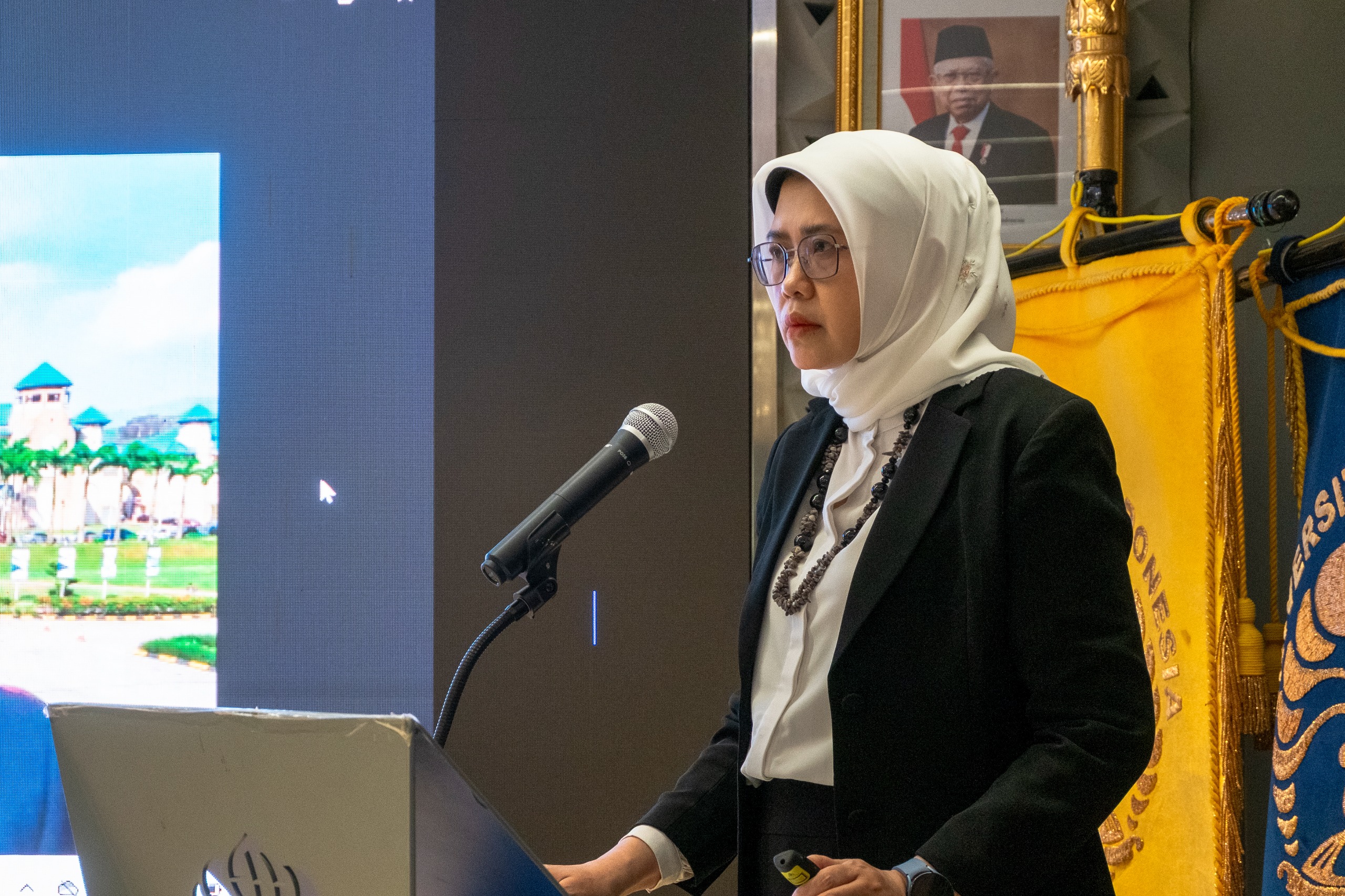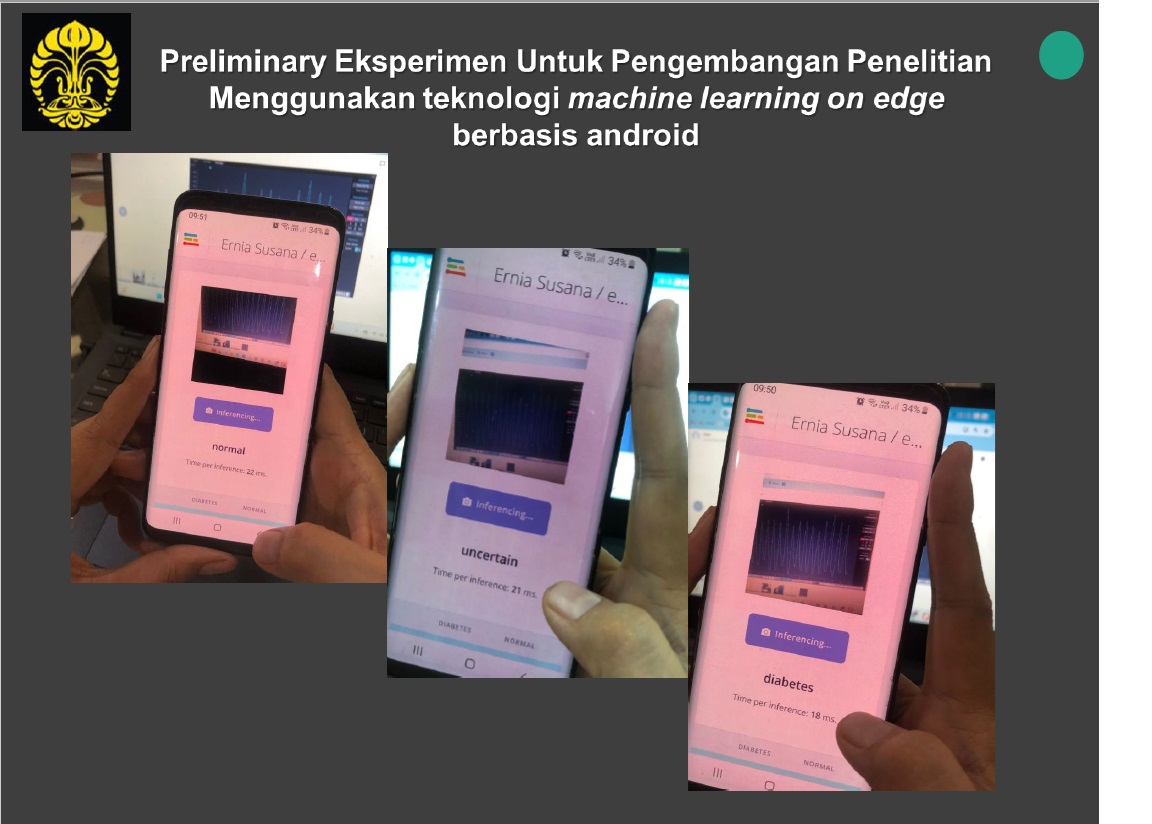Dr. Ernia Susana, a doctoral student in Electrical Engineering at the Faculty of Engineering (FT), Universitas Indonesia (UI), has developed a new method for monitoring blood glucose levels without using needles. This method utilizes light technology known as Photoplethysmography (PPG) signals and artificial intelligence (AI), aiming to make it easier, more comfortable, and affordable for diabetes patients to monitor their blood sugar levels.
The PPG technique measures changes in blood volume in blood vessels using light. The biggest challenge with this method is signal interference caused by movement and other factors. Dr. Ernia employs time-frequency analysis (TFA) techniques based on Short-Time Fourier Transform (STFT) to address this issue to improve signal quality.
Dr. Ernia conducted three phases in her research: Monitoring System Development, TFA Technique Implementation, and Testing on Secondary Data. In developing the monitoring system, Dr. Ernia combined electronic filters and AI to create a more accurate blood glucose monitoring system. This phase used data from 80 adults collected during the Covid-19 pandemic. The best model found was the Ensemble Bagged Trees (EBTA) with an accuracy of 97.8%.
Then, the TFA technique was used to enhance the signal quality input to the AI model. From the research results, the Support Vector Machine (SVM) model achieved an accuracy of 91.3% with a training time of 9.25 seconds, while the Bidirectional Long Short Term Memory (BLSTM) model achieved an accuracy of 87% with a training time of 15 seconds.
Dr. Ernia explained that further development of this research includes recommendations for using BLSTM-based deep learning algorithms with optimization techniques to increase accuracy and reduce training time. Additionally, the research suggests developing an Android-based BGL monitoring application for faster and more responsive data processing.
Dean of FTUI, Prof. Dr. Ir. Heri Hermansyah, S.T., M.Eng., IPU., stated that “The development of non-invasive BGL monitoring techniques offers a potential solution to improve patient compliance in routinely monitoring blood glucose levels. With high accuracy and efficient training time, this technology can become an important tool in the early detection and management of diabetes in the future. Further research is expected to optimize this technology through the combination of algorithms and the development of mobile-based applications.”
Ernia’s research is detailed in her dissertation titled “Development of Artificial Intelligence Models for Non-Invasive Blood Glucose Level Classification Based on Photoplethysmography Signals with Enhanced Time-Frequency Analysis Feature Extraction for Early Diabetes Detection.” The doctoral promotion open session took place on July 3, 2024, at the Smart Meeting Room, FTUI Dean Building.
Thanks to this research, Dr. Ernia successfully defended her dissertation and earned a Doctorate in Electrical Engineering with Cum Laude honors, and a GPA of 3.98. Dr. Ernia became the 173rd doctorate in the Electrical Engineering Study Program and the 555th doctorate in FTUI.
The doctoral promotion session was led by Prof. Ir. Mahmud Sudibandriyo, M.Sc., Ph.D., with advisor Prof. Dr.-Ing. Ir. Kalamullah Ramli, M.Eng., Co-advisor 1 Dr. Prima Dewi Purnamasari, S.T, M.T, M.Sc., and Co-advisor 2, Dr. Nursama Heru Apriantoro, S.Si, M.Si., as well as examiners consisting of Prof. Dr. Ir. Riri Fitri Sari, M.M. M.Sc., Prof. Dr. Ir. Anak Agung Putri Ratna, M.Eng., Dr. Ir. Dodi Sudiana, M.Eng., Dr. Eng. Mia Rizkinia, S.T, M.T., and Prof. Dr. Teddy Surya Gunawan, M.Eng, C.Eng, IPU.
***
Public Communication Office
Faculty of Engineering Universitas Indonesia





